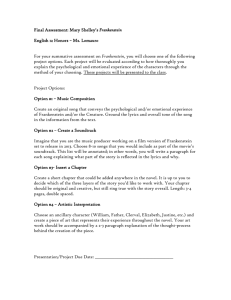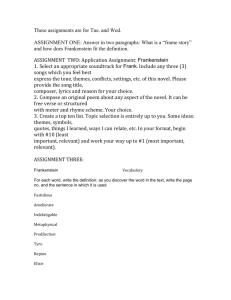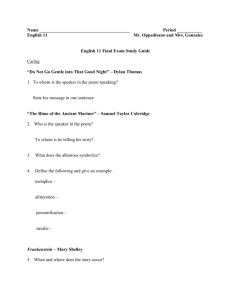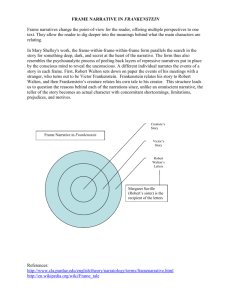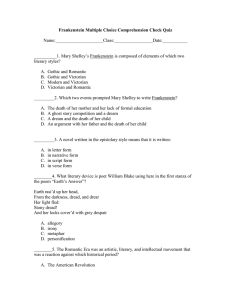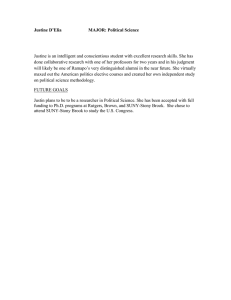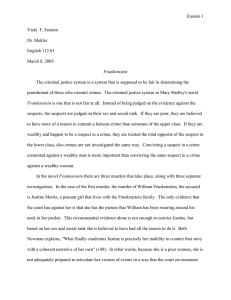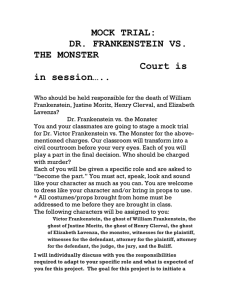Postcolonialism
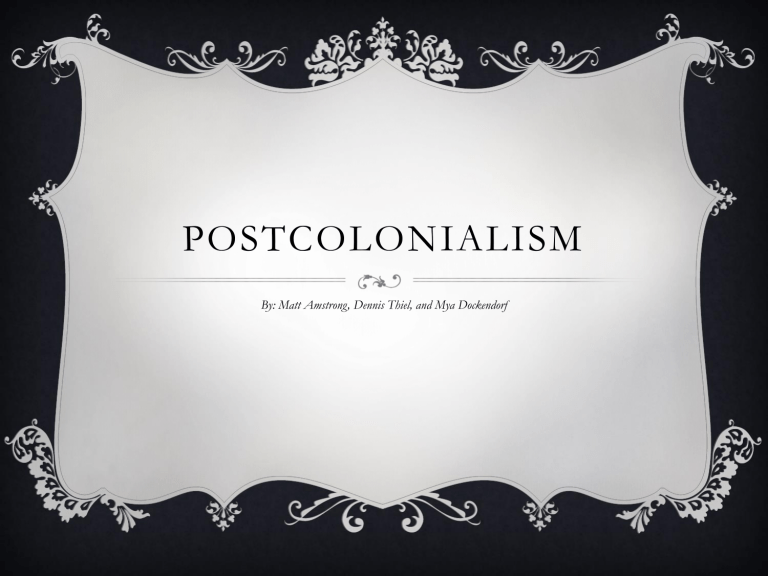
POSTCOLONIALISM
By: Matt Amstrong, Dennis Thiel, and Mya Dockendorf
Post colonialism: a story shown from someone else's point of view, typically a group or person that has been previously silenced.
The term post colonialism formed when womens rights and rights for minorities came about, when women were starting to talk out and against the unfairness of life. The slaves when they were freed also started writing, and speaking out against prejudice.
In the book Frankenstein, Mary Shelley puts in the role of women as minor characters who died or faded into the back ground as the story progresses. However, there are some times when the women of the story don’t act typically, or they speak out or speak their mind.
Here are some examples of that…..
In the middle of the story, the beast kills Elizabeth, and she is also scared and asks to leave, something that is atypical of a women to do in those days. They were not supposed to talk unless spoken too.
JUSTINE
Justine plays a large part for a women, and speaks out symbolically and metaphorically for the most part, instead of literally.
She was the one who was playing the violin to soothe the monster.
Victor Sr. was her boyfriend, so she could influence him directly or indirectly.
She set out Victor Sr.’s book so Frankenstein would see it.
The biggest thing Justine did that would most likely convey the definition of post-colonialism would be when she yelled out and declared what she did to Frankenstein and that she had freed him. She spoke out, knowing full well that she was speaking against them and for many that have been silenced.
THE MESSAGE
The overall message of the novel conveys in the sense of post-colonialism that you should pay more attention to and listen to others that you deem as not as important in the big picture, when really they could be the key to everything.

